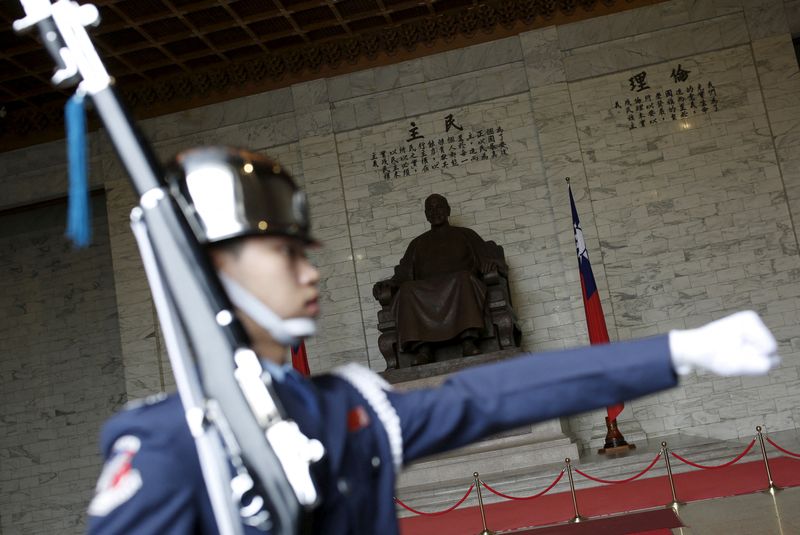TAIPEI (Reuters) – Taiwan will withdraw military honor guards at memorial hall for former leader Chiang Kai-shek as part of ongoing efforts to end the “worship of authoritarianism,” the Culture Ministry said Friday.
Widely hailed in life as an anti-communist hero, many in Taiwan today despise Chiang as a despot who imprisoned and killed opponents during his rule. Chiang retreated to the island with his Republic of China government in 1949 after losing a civil war with Mao Zedong's communists.
When he died in 1975, his son Chiang Ching-kuo took power and took cautious steps toward greater political openness.
The monument to the elder Chiang, with its giant bronze statue, dominates central Taipei. The Ministry of Culture said that starting Monday, military honor guards will be moved from their ceremonial duties in the hall to the square in front.
“The Ministry of Culture also considers 'removing the personality cult' and 'ending the worship of authoritarianism' as the transitional justice objectives of the Chiang Kai-shek Memorial Hall at this stage,” the ministry said in a statement.
Taiwan, now a democracy, has a Transitional Justice Commission charged with investigating cases of political persecution that occurred during Chiang's “white terror” campaign against dissent.
In Taiwan, martial law was not ended until 1987, with the first direct presidential elections held in 1996.
Taiwan has gradually reduced Chiang's public influence in recent years. In 2006, the island's main international airport was renamed from Chiang Kai-shek International Airport to Taoyuan International Airport.
(Reporting by Ben Blanchard; Editing by Miral Fahmy)

